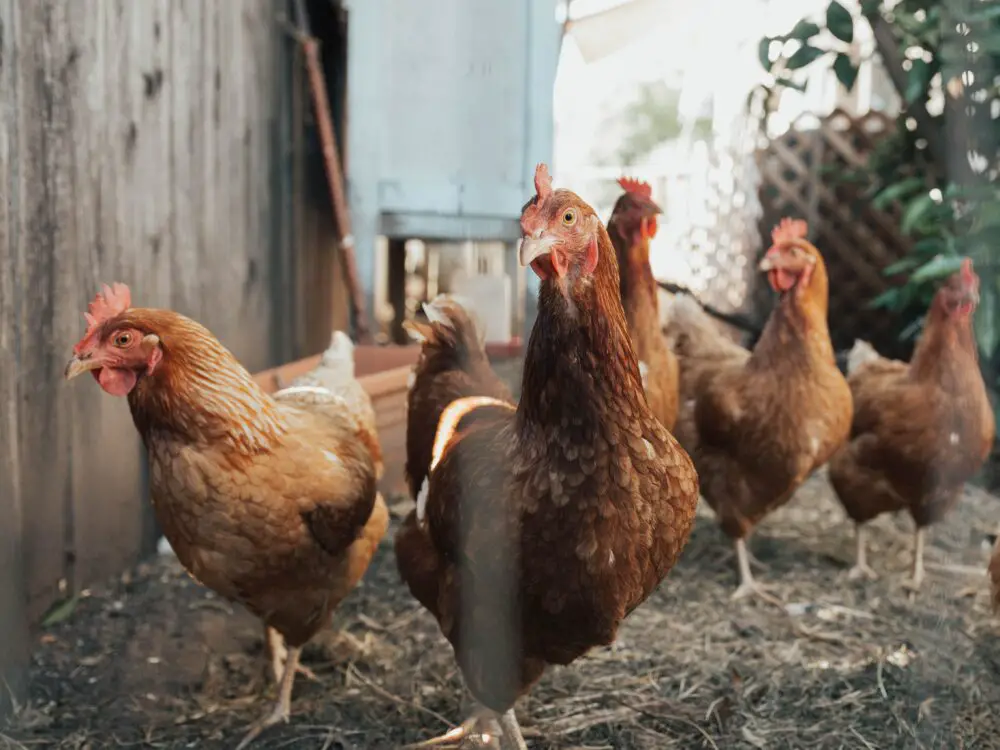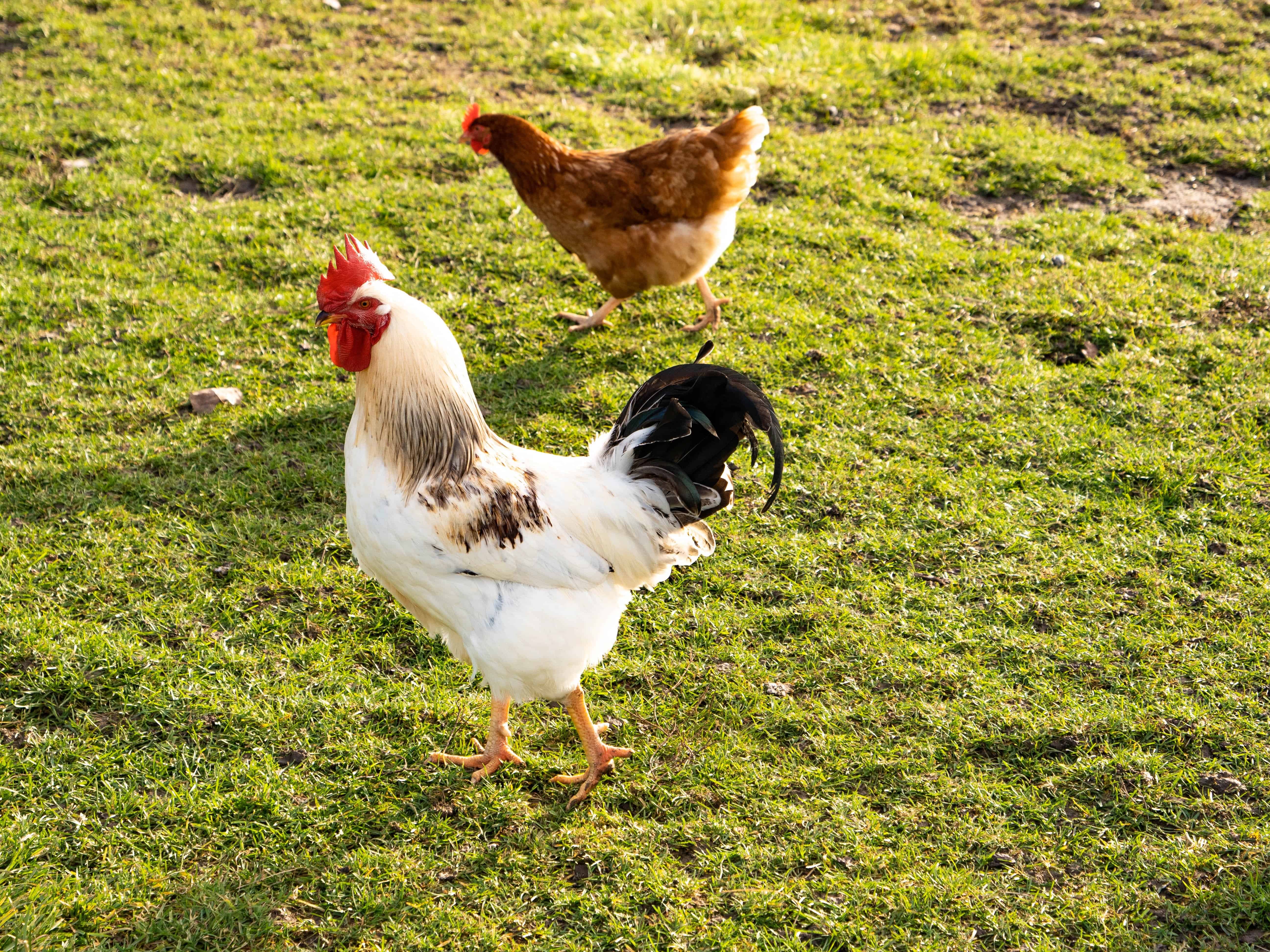Chickens are the second most consumed animal in the world. And our demand for cheap, fat, and prevalent birds has created an industry where comfort and ethics are replaced with labor and cost-cutting procedures.
Combine this with the environmental impact, and there are many virtuous questions about eating these peaceful birds.
Chickens are surprisingly intelligent and social creatures. Combine this with the impacts of raising these animals in factory farming conditions, and there is little question about whether chicken consumption is considered cruel.
Meat consumption is on the rise globally. Efforts to supply this growing demand has caused factory farming techniques to become the new normal.
These conditions are horrific. They deny chickens from having their social and comfort needs met throughout their lives.
Although this is reason enough to stop eating chicken, there are still many other ethical issues you need to think about.
What Makes Eating Chicken Cruel?
While many omnivores will argue against the ethical issues with meat consumption, there is no denying that the way we currently raise poultry has a massive impact on our culture, health, and planet.
Here are some things to consider when thinking about eating chicken:
Even though these issues may resonate with you emotionally, the question of whether eating chicken is cruel is an even bigger humanitarian and environmental question.
The hard facts about factory farming become muddy with opinions on morality and philosophy.
What we can all agree on is that the 129 Billion Pounds of CO2e emissions produced each year from chicken production or the 20,00 square miles of land used and countless gallons of water spent on raising birds in the US alone is an enormous problem.
So the next question is – do we really need to eat chicken?
Is it Morally Wrong to Eat Chicken?
There are many people out there who have no qualms about consuming chicken. They would say that eating meat is part of human nature and that culturally and historically, we have been eating chickens for thousands of years.
Some might even argue that the reason chickens exist is so that we can eat them.
But before you reach for those skinless breasts on your next grocery outing, consider these questions:
These questions can help guide you to a better understanding of our cultures' relationship with chicken consumption.
The reality is humans are omnivores and can exist on a plant-based diet. This is the basis for the argument of moral necessity. Since we no longer need to eat chicken to survive, we shouldn't.
Although all factory farms raise animals in inhumane and cruel conditions. Chickens, are often kept in some of the worst production environments there are.
They are smashed together in cages, aren't allowed to walk, and are genetically modified to the point of disfigurement.
So why does the life of a chicken contain so much suffering compared to other animals?
The Environmental Impact of Chicken Consumption
Ethics aside, there is a tangible and quantifiable way to explore the impact of chicken consumption. Chicken has become a commodity in the world.
Their status as a member of the animal kingdom comes a far second to the money they produce. Because of this, factory farms cut corners and create some significant issues for the earth.
Since we already explored some of these problems earlier, here are some quick facts to hammer in the point:
The unfortunate reality is that chicken production is not as regulated as you might think it is. An industrial chicken farm can house upwards of 600,000 birds.
Because state and federal laws are loosely defined and enforced, the impact of environmental pollution is high. Poultry production puts a particular strain on our waterways.
Relative to other meats, like beef or pork, chicken is the least environmentally disruptive. But compare that to not eating chicken, and you can quickly see how detrimental even consuming chicken can be.
To put it in perspective, opting out of eating one chicken breast per week in a year can save around 5,000 gallons of water, enough to flush a toilet almost 3,000 times.
Chickens are Very Smart and Social Creatures
While they often get labeled as dumb birds, chickens are incredibly intelligent and have complex social structures. Recent studies have shown us a lot about chicken intelligence and its deep emotional complexity.
Chickens also have complex social orders and are even known to handle basic arithmetic and counting tasks.
Chickens are surprising creatures:
Chicken can also be trained much like other pets. They respond well to the same rewards a dog would, like praise and a good snack.
Often they can even pick-up simple tasks faster than a dog. People can often train chickens to enjoy human touch, and when they do, they are known to search out petting or scratches from their trainers.
As you can see, chickens are more than just what's for dinner. They are as complex and intelligent as a dog or cat.
They feel pain in more than just the physical sense and are often denied the chance to explore the social aspects of a natural bird's life.
You might cringe and feel disgusted at the idea of eating a dog for a lot of the same reasons listed here – so why are chickens different?
Conclusion
Chicken production is problematic. While the question of whether it is cruel or not is one for you to make yourself, you can now see how much of an ecological, environmental, and social impact chicken consumption can have.
So, the next time you are at the store, fight the urge to go past the meat aisle. We know it's hard, but finding plant-based food alternatives in supermarkets today (that actually taste good) is much easier than it was five years ago.
You definitely won't feel as though something is missing from you plate.


